8 Questions to Ask Yourself Today
You want change? Here's how to get it—in big, fat, meaningful ways—from a few of this year's freshest, wisest thinkers.
By Leigh Newman
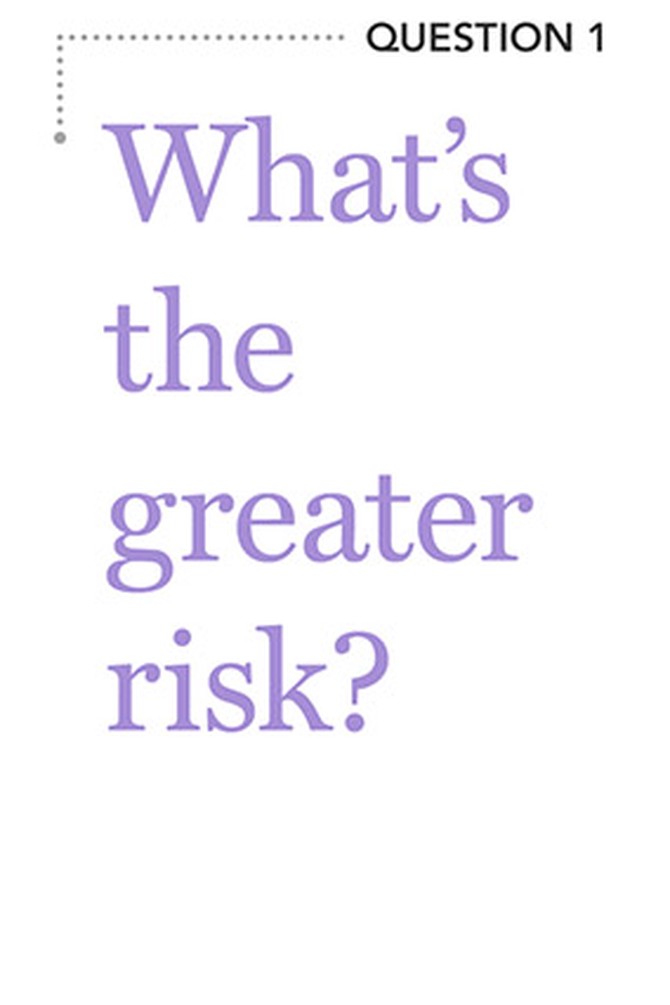
Illustration: Jen Troyer
For most of us, the choice to be honest about ourselves can mean exposure, and possibly even being hurt. Who wants to admit that we're in love with our oldest friend or—oh, dear God—longing to write poems instead of becoming a partner at the law firm? But, however afraid we are, says Brené Brown, PhD, the author of Daring Greatly, "The question that we must ultimately answer is this: What's the greater risk? Letting go of what people think, or letting go of how I feel and what I believe and who I am?"
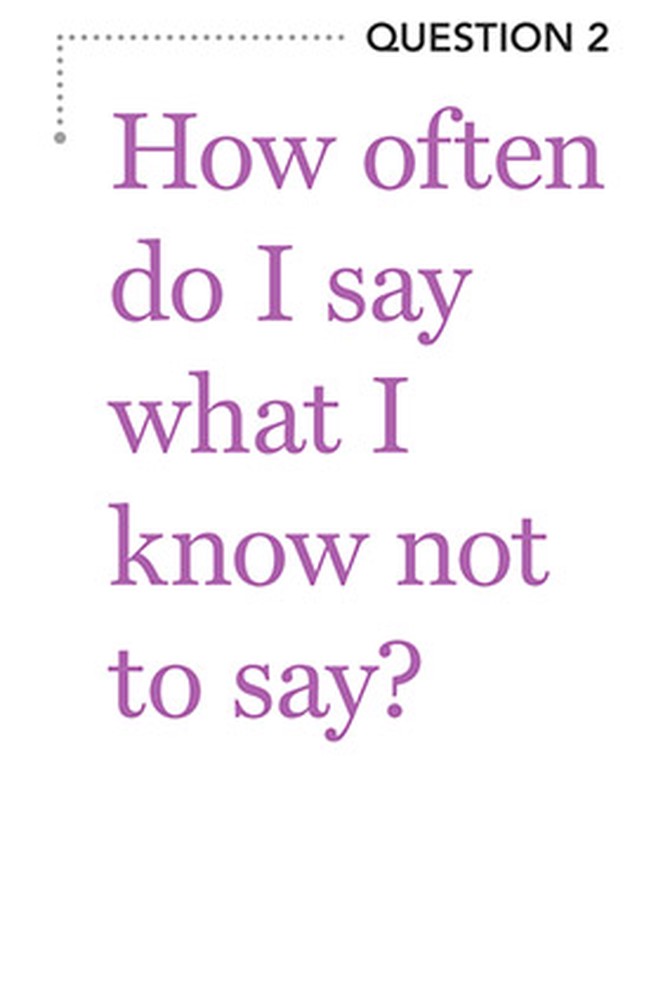
Illustration: Jen Troyer
"Have you ever been in an argument and know exactly what not to say?" asks Rob Bell, in Love Wins. "You knew exactly what would most wound the other person, what would unnecessarily drag the past up, what would get right to the person's heart in the quickest, most hurtful way—and yet, you said that very thing anyway? Me, too." The reason why we need to ask this one is not to feel god-awful about ourselves, but to tally up the apologies we might need to make and to prevent ourselves from doing this again.
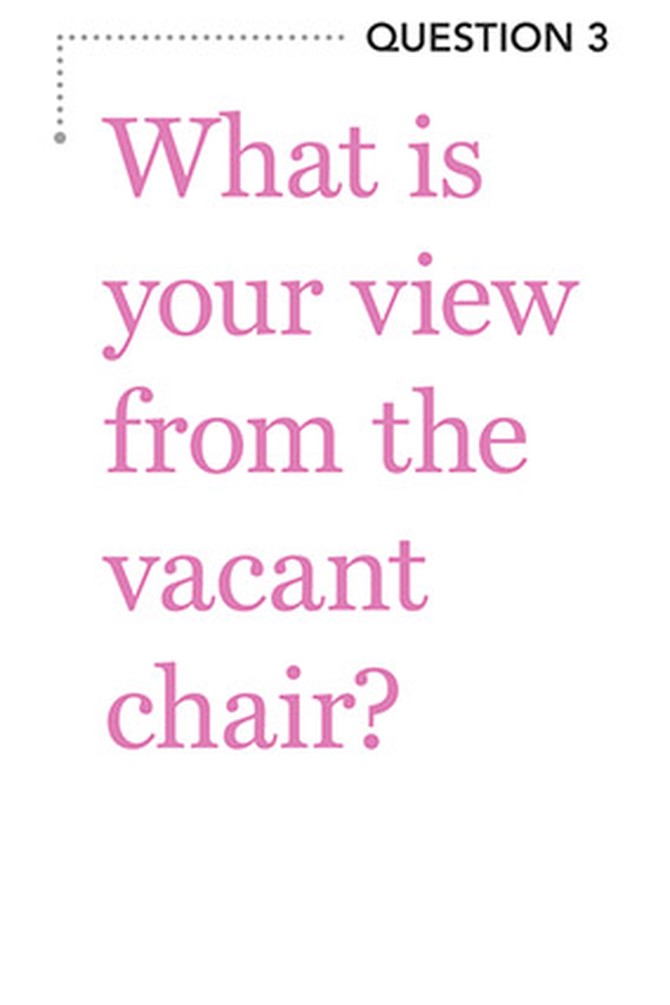
Illustration: Jen Troyer
Consider, for a minute, the chairs that nobody sits in. "You see them on porches and lawns," writes poet Billy Collins, in his new collection Aimless Love. "Down by the lakeside, usually arranged in pairs, implying a couple." What would happen, Collins asks, if everyone sat down in them? Not to look out at the water or enjoy the sunset but, "only for the sake of remembering what it was they thought they deserved to view..." What did you imagine lay ahead when you were 14 or 24 or 34 or 44 or even last year: A writer's studio? A child fishing on the gravel? Your best friend calling you over? Is the view still the same? Has it changed? Or did you put it aside—and why?
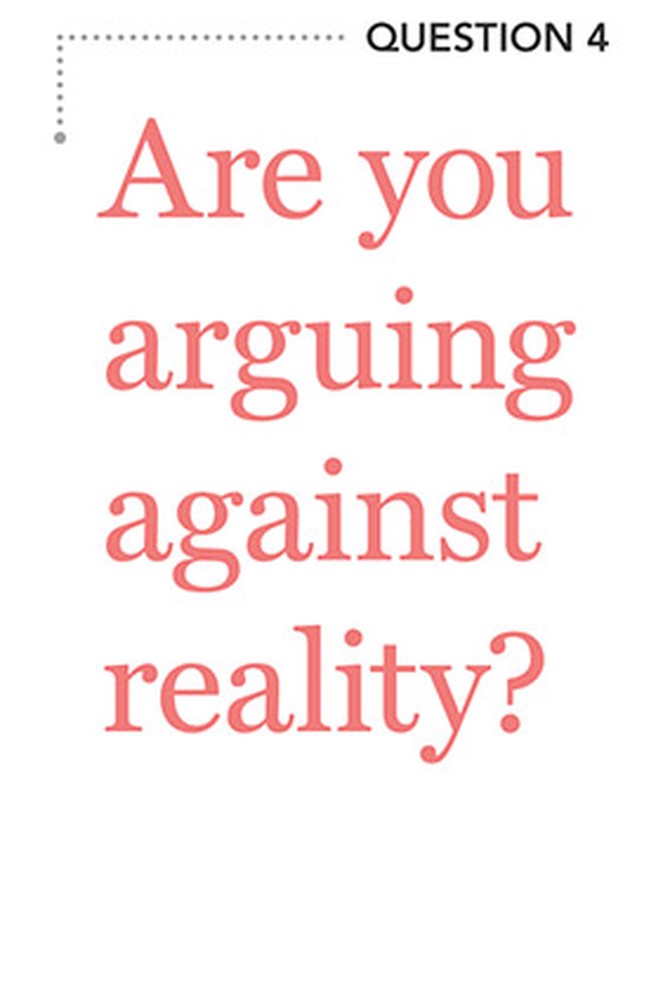
Illustration: Jen Troyer
You may get laid off, dumped or fall down the step, break your kneecap and never be able to run again. This is not fun and certainly not fair. But whatever happens, butting heads with the unchangeable doesn't alter the facts. "I am a lover of what is," says Byron Katie, "not because I'm a spiritual person, but because it hurts when I argue with reality." Imagine what your difficulty would be like without that extra pain—and distraction.
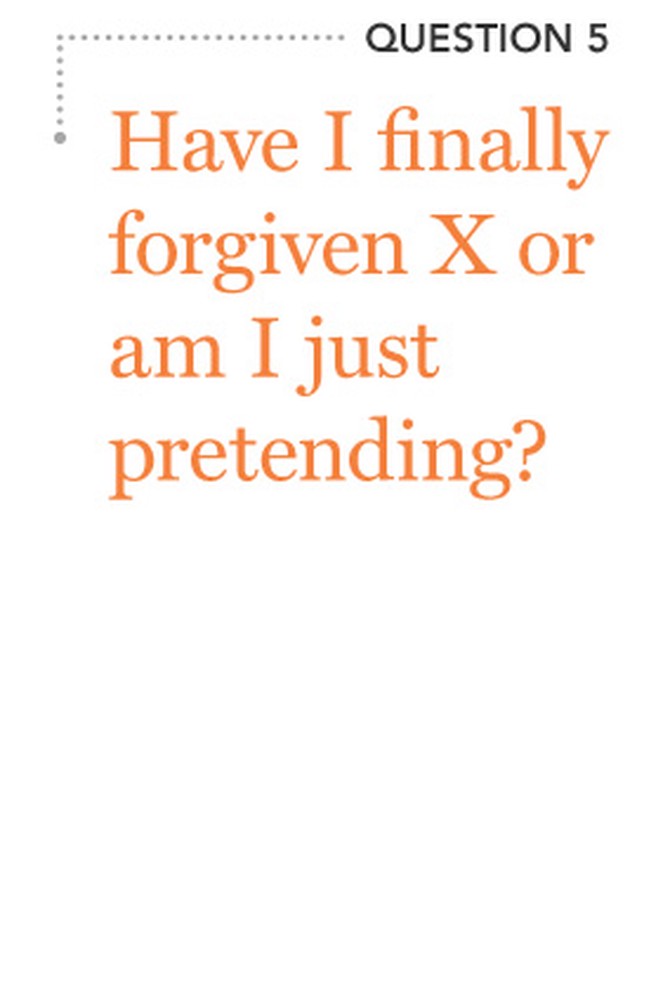
Illustration: Jen Troyer
We all want to forgive X, whoever she or he is. Forgiving X is supposed to free us. Forgiving heals us. And so...we've gone to therapy and prayed and written in our journal. We think we're over the mother who left or the friend who slept with our ex-husband...but how do we know? "Forgiveness inevitably leads to acceptance," writes Iyanla Vanzant in Forgiveness: 21 Days to Forgive Everyone for Everything. "Acceptance does not mean that you agree with, condone, appreciate or even like what has happened. Acceptance means you know...that there is something bigger than you at work. It also means you know that you are going to be okay and that you will continue to be okay." Even if the person you have to forgive (and thus, accept) is you.
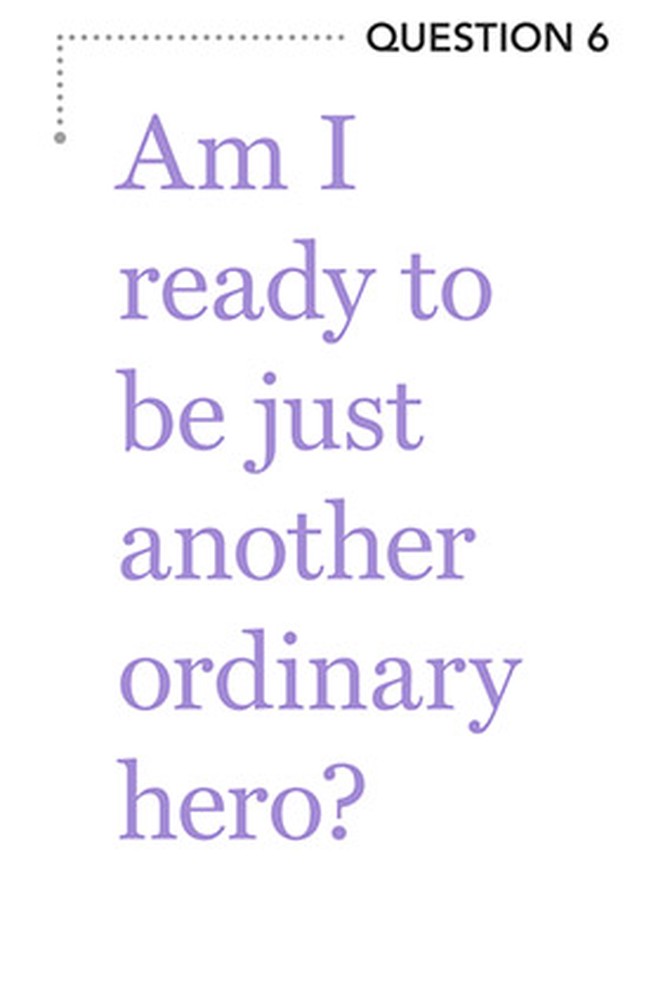
Illustration: Jen Troyer
It's comforting to believe in heroes. They save kids from the Nazis, dive into icy rivers to save the injured and provide computers to low-income-household kids. In short, they do stuff we normal folk would not think to do or would be too afraid to do or just can't do (right now). But what if, as Philip Zimbardo, PhD, and Zeno Franco, PhD, propose in their Heroic Imagination Project, we stopped thinking of heroism as a special, rare quality belonging only to a select few? What if heroic acts were, "something that anyone can perform, given the right mind-set and conditions?" By conceiving of heroism as an ordinary characteristic of human nature—and familiarizing ourselves with ways to deal with challenging situations—we can train ourselves to act, instead of to step aside. All of which leads to a follow-up question: Where can I start using my completely commonplace heroic powers, right now?
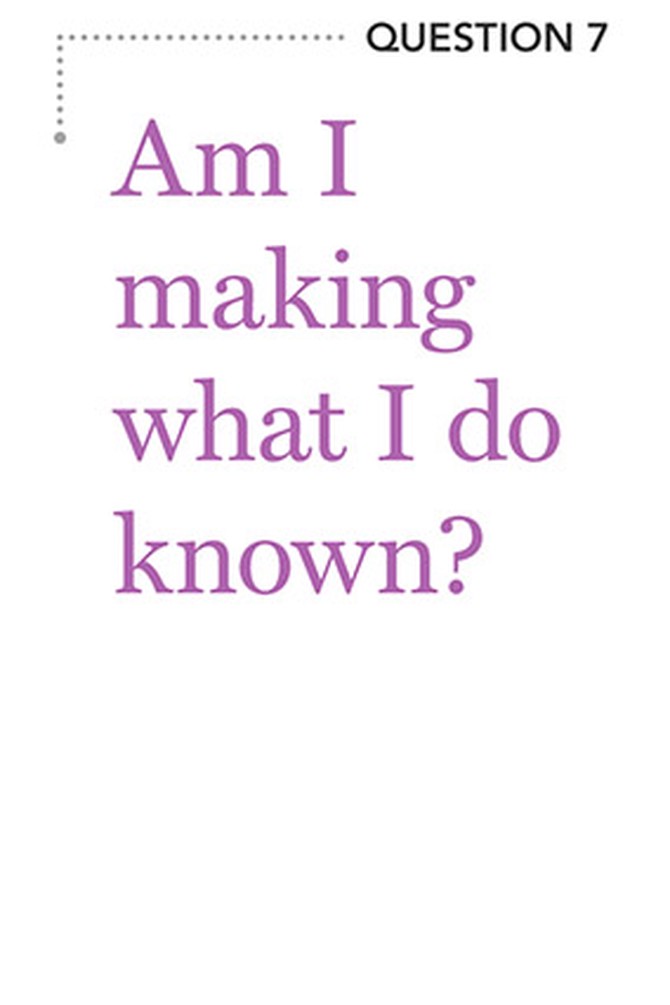
Illustration: Jen Troyer
The majority of women are in a tough spot: Men are far more likely to spread the news of their successes—and to be promoted for them. But, at the same time, women who self-advocate are often considered aggressive and unlikable (as research has shown). But there are ways out of this bind, say Caryl Rivers and Rosalind C. Barnett in The New Soft War on Women. Let's say your latest project won an industry award, and you're already connected (via LinkedIn or Facebook) with your colleagues and bosses. Post that announcement on your page. Or, if your boss asks about your project, use that opportunity to mention your key contributions. Succeeding is not just about doing quality work, it's about being associated with that excellence.
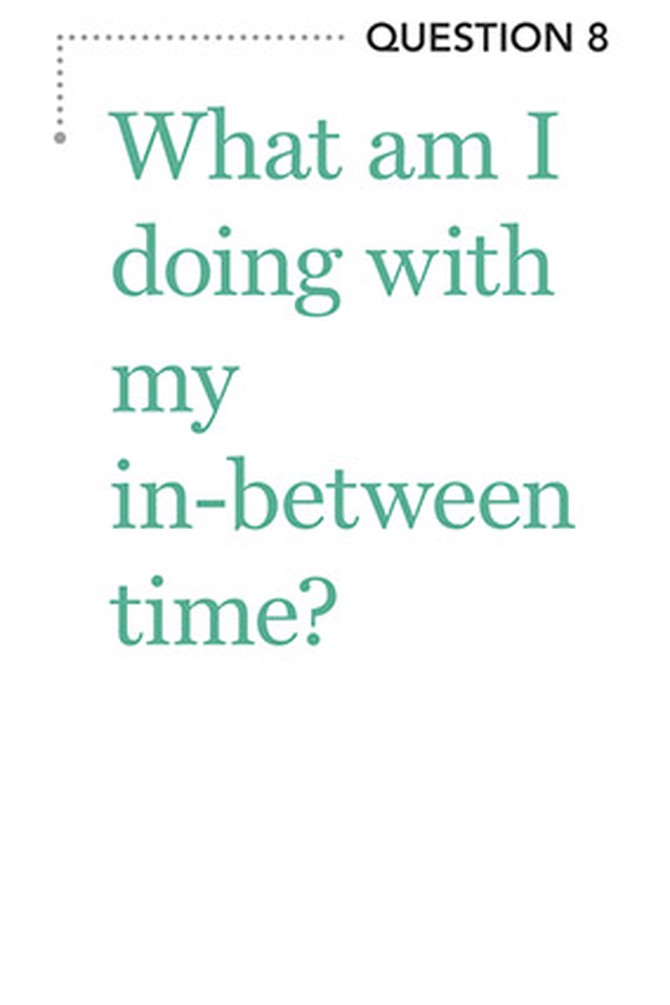
Illustration: Jen Troyer
"Sometimes love does not have the most honorable beginnings," writes Ann Patchett in This Is the Story of a Happy Marriage. "And endings, the endings will break you in half." Both statements are so horribly, hugely true that you may just wonder whether love—for a lover, friend or even a dog—is worth it. But as Patchett puts it: "It's everything in between we live for." What are you doing with that time? Regretting or doubting the clumsy start of love? Fearing its end? Or celebrating—lavishly—the in-between?
Next: 20 questions that could change your life
Next: 20 questions that could change your life
Published 01/03/2014
As a reminder, always consult your doctor for medical advice and treatment before starting any program.

